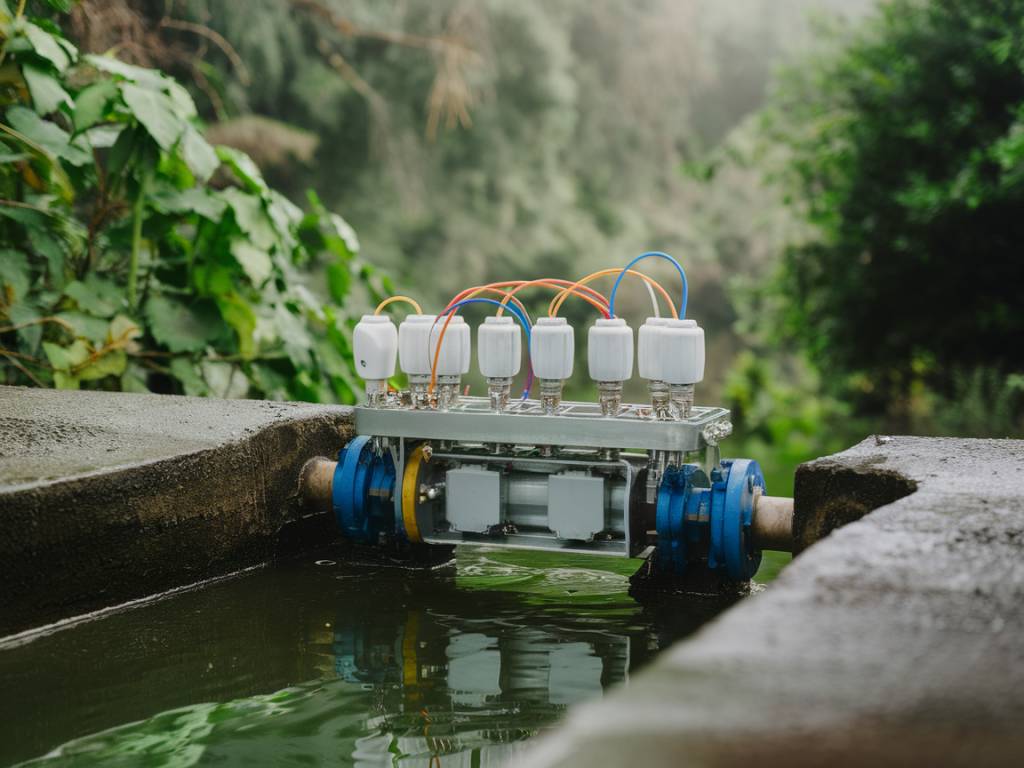« `html
Smart Sensors and AI: The Future of Water Quality Monitoring
Water is essential for life, yet pollution and contamination threaten its safety worldwide. Traditional water quality monitoring methods rely on manual sampling and laboratory analysis, which can be time-consuming and expensive. However, new advancements in smart sensors and artificial intelligence (AI) are revolutionizing how we monitor and manage water quality in real time.
How Smart Sensors Improve Water Quality Monitoring
Smart sensors are cutting-edge devices capable of continuously measuring various water quality parameters without human intervention. These sensors use advanced technology to detect contaminants, measure pH levels, monitor turbidity, and assess dissolved oxygen concentrations.
Key benefits of smart sensors in water monitoring include:
- Real-Time Data Collection: Unlike traditional methods, smart sensors provide immediate feedback, allowing authorities to take swift action against contamination.
- Remote Monitoring: Many smart sensors are equipped with wireless connectivity, enabling data transmission to centralized systems without manual interaction.
- Cost Efficiency: Automated monitoring reduces labor and laboratory testing costs, making it a more affordable and scalable solution.
- Enhanced Accuracy: Advanced sensor technology minimizes human error and provides consistent, accurate readings.
With these advantages, smart sensors offer a proactive approach to water quality management, ensuring safer drinking water and healthier ecosystems.
The Role of Artificial Intelligence in Water Quality Management
Artificial intelligence is playing an increasingly important role in analyzing data collected from smart sensors. AI algorithms process vast amounts of water quality information to identify trends, predict contamination risks, and optimize water treatment processes.
Some notable contributions of AI include:
- Predictive Analytics: AI systems can detect patterns in sensor data, predicting potential problems such as harmful algal blooms or chemical imbalances before they become critical.
- Automated Alerts: Machine learning models can send instant warnings when water quality parameters exceed safe levels, allowing for immediate corrective actions.
- Optimized Water Treatment: AI-driven systems help water treatment facilities adjust chemical dosing and filtration processes for maximum efficiency.
- Data Interpretation: AI can analyze complex datasets, distinguishing between natural fluctuations and actual pollution threats.
By integrating AI with smart sensors, industries, municipalities, and environmental organizations can create more effective water quality monitoring systems.
Applications of Smart Sensors and AI in Water Management
These technologies are being integrated into various sectors, providing innovative solutions for water quality challenges.
Key applications include:
- Drinking Water Safety: Public water systems use smart sensors and AI to ensure compliance with quality standards and detect contamination early.
- Industrial Wastewater Monitoring: Factories employ AI-driven sensors to track wastewater discharge and prevent regulatory violations.
- Agricultural Water Management: Precision agriculture relies on smart sensors to measure irrigation water quality, reducing the risk of soil and crop contamination.
- Marine and Freshwater Conservation: Environmental researchers deploy AI-enhanced sensor networks to monitor aquatic ecosystems and detect pollution sources.
These applications demonstrate the potential of smart technology to safeguard water resources and protect human and environmental health.
Challenges and Future Prospects
While smart sensors and AI bring significant advantages, there are challenges to widespread adoption. Sensor maintenance, data privacy concerns, and integration with existing infrastructure require careful consideration.
However, ongoing advancements continue to improve these technologies, making them more reliable and cost-effective. The future of water quality monitoring will likely involve even more sophisticated AI models, enhanced sensor durability, and increased public-private partnerships for sustainable water management.
As we adopt smart solutions, we move closer to ensuring clean, safe water for all communities. The combination of smart sensors and AI represents a transformative shift in the way we protect one of our most vital natural resources.
« `
